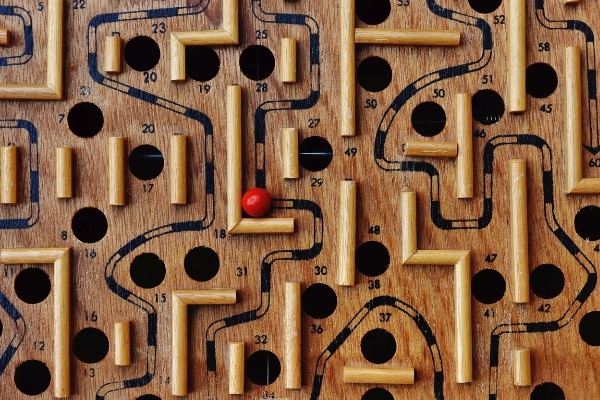
I recently read a quote on social media from James Clear, the author of Atomic Habits. He said, “You do not rise to the level of your goals. You fall to the level of your systems.” This quote is indeed accurate. You must build simple systems for success to achieve your productivity and organizing goals. Your productivity improves only as much as your systems allow it. If you have poor systems, maybe you can do enough work, but you might not have the energy to devote to the other important things in your life.
There is a caveat for building systems that John Gall raised in his 1975 book Systemantics. Gall stated, “A complex system that works is invariably found to have evolved from a simple system that worked. The inverse proposition also appears to be true: A complex system designed from scratch never works and cannot be made to work. You have to start over, beginning with a working simple system.”
Building Productivity and Organizing Systems
Productivity and organizing are skills you can learn – like playing the piano. We don’t start learning to play piano with Liszt’s La Campanella. We start with scales and simple pieces like Twinkle Twinkle Little Star. Then, we build on those skills moving to more and more complex musical numbers.
As a professional organizer, I notice a similar phenomenon with my clients. They organize one small area of their home, such as the front entryway. After they build simple systems for success in that area, they are ready to focus on organizing another area of their home. Once they manage that space, they move to the next one until they organize and streamline the entire house. The best part is that they can keep it organized because their complex system isn’t complex. They built a series of simple systems on top of or next to other simple systems.
Productivity is no different. We start with some basic structures, such as designating a time and creating a routine to manage our day-to-day finances. Next, we might establish a morning routine where we get up at the same time every day, eat breakfast, get dressed, walk the dog, etc. etc. Once we master those processes, we can build on them to have a more structured day to ensure we accomplish all of our tasks.
To build simple systems for success, ensure you continually communicate with the users and make appropriate adjustments. For example, if you are using time-blocking to improve your productivity, leave some space between your events to cope with unexpected changes. Likewise, you will need to adapt to the people using the organizing system, their schedules, and even the seasons. For instance, arranging your clothes closet could change if you get a new job that requires you to wear a uniform.
Remember, productivity and organizing aren’t a “one and done” event. You need to build systems for success and continually adapt them to suit your needs. Learn more about our productivity workshops or contact us to help you organize your home or office.
Image by rawpixel.
